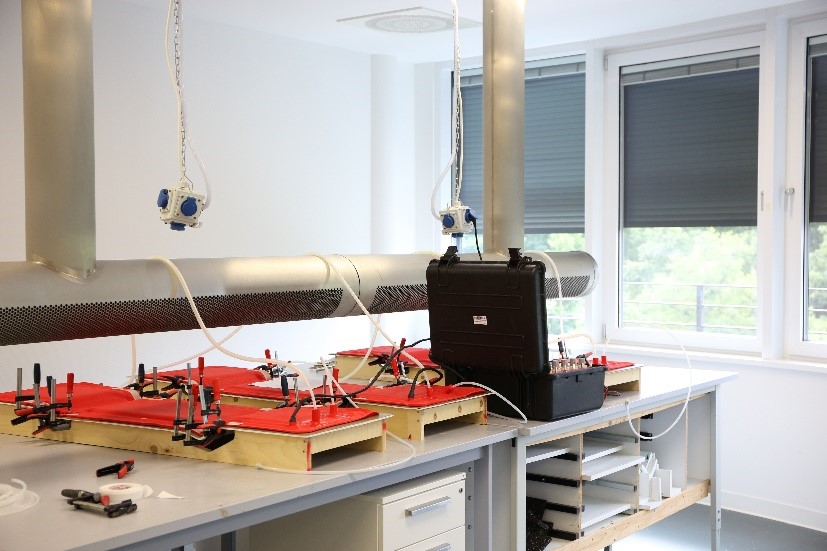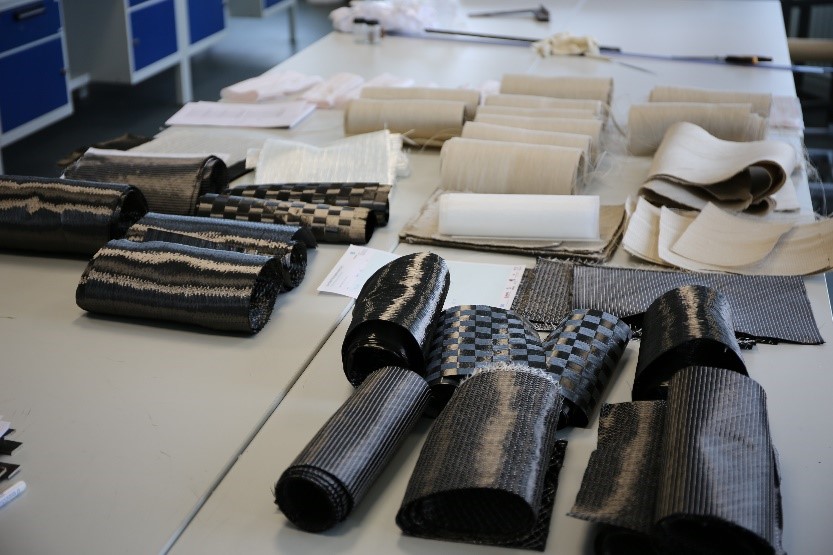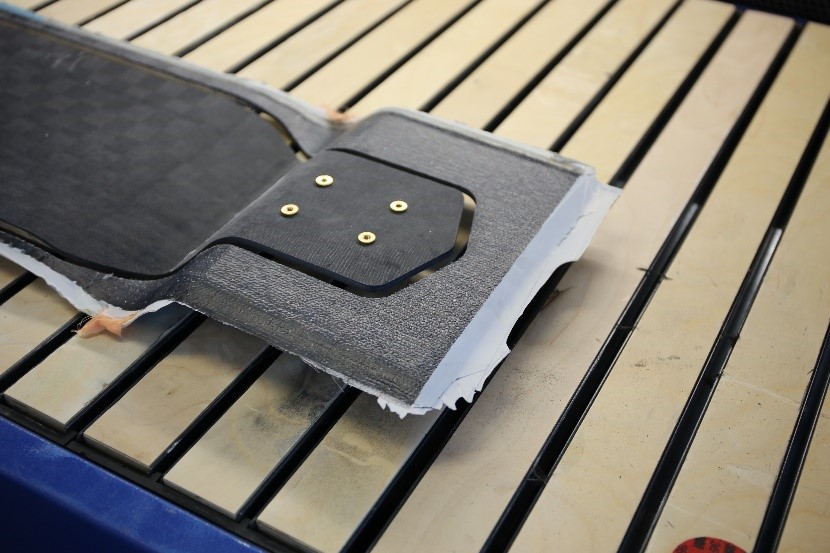In 2020 the Bremer FaserverbundPRAXIStage will take place for the third time. As a practice-oriented counterpart to the "Bremen Composite Days", participants will have the opportunity to train and expand their practical skills in handling composites. The special feature of this course is that the graduates take home a self-manufactured longboard made of carbon fibre reinforced plastic. For this purpose, there is a short refresher of the relevant knowledge about the production and processing of FVK components. The focus, however, is on manufacturing the component using the vacuum infusion process. We talked to course instructor Claas Hoffmann about this very special composites training course at the Fraunhofer IFAM.
Out of theory and into practice: The Bremer FaserverbundPRAXIStage - the "somewhat different" composites course at Fraunhofer IFAM



Mr Hoffmann, one question must be allowed at the beginning of our interview: Do you keep a statistic about the feedback of former participants, how many are already able to do tricks like "Pivot", "Peter Pan" or "Cross Step"?
To be honest, we have never questioned the acrobatic skills of our participants. However, the motivation in the course increases significantly when real components are produced.
Joking aside: Why is the longboard perfectly suited as a workpiece to train component manufacturing using the vacuum infusion process? Most participants will probably work in other industries...
That's probably true. The percentage of participants who enjoy longboarding themselves is probably low. However, we haven't had a single participant who wouldn't have been thrilled about a self-built board.
To explain why, I have to go a bit further. Our FaserverbundPRAXIStage are an event where our participants are supposed to produce a component in one and a half days and take it home with them. This alone drastically limits the possible objects that can be produced. And in the end, the focus from our side is on the production steps of FVK. From a manufacturer's point of view, our longboard is not much more than a beautifully shaped, slightly curved board and thus offers us many possibilities to deal with the details in the manufacturing process.
What were your motives for founding the Bremer FaserverbundPRAXIStage 2018? What should the participants take with them apart from the finished board?
In addition to our purely theoretical re-certification offers, we wanted to give our participants the opportunity to remember practical contents of the courses and to train skills. Therefore, the Fibre Composite PRACTICE days are comparable to the Fibre Composite Days in terms of the time required. However, the number of participants is significantly smaller and therefore the atmosphere is even more personal.
What are the requirements for successful participation in the Bremer FaserverbundPRAXIStage? Do you need any special previous knowledge?
As already mentioned, the courses were originally set up as a re-certification measure. However, the contents are designed in such a way that it is possible to attend the FaserverbundPRAXIStage without prior participation. The idea here is to give potential interested parties an insight into the world of fibre composites and at the same time to give an impression of what a training course at our company would look like.
Intensive support is indispensable, especially for a practical course. How many participants are there in the course and how do you ensure the best possible support in all phases of the course?
Intensive personal support is the keyword here. For this reason, the Fibre Composite PRACTICE days are limited to a maximum of ten participants and are usually supervised by at least two of our instructors in the one and a half days. We prepare the individual work steps required in such a way that the participants can deal with the essential aspects of production without time pressure and intensively.
What makes the Fraunhofer IFAM the ideal place to hold the Bremer FaserverbundPRAXIStage?
In addition to the technical content, which we can always keep up to date due to our proximity to industry and applied research, we pay special attention in each of our courses to a didactically high-quality knowledge transfer. In the case of the practical learning content, this means that each participant can put his or her individual experience to the test and expand it. The challenge here is not only to provide each participant with a workstation, but also to ensure that each participant has the opportunity to develop and expand his or her individual experience.
What ideas are there for further practical courses in the field of composites? Is there an increasing demand for such courses?
Looking back over the past year, we have noticed a growing interest in our practice-oriented courses. The challenge, however, is already at the FaserverbundPRAXIStage to regularly bring new content in order to maintain the interest.